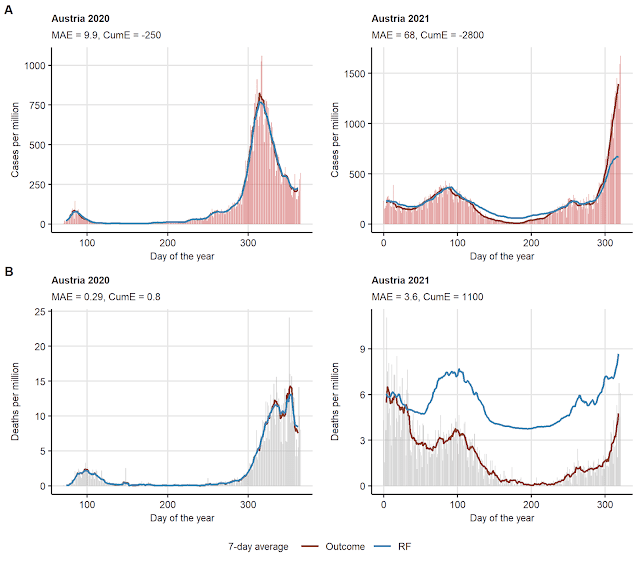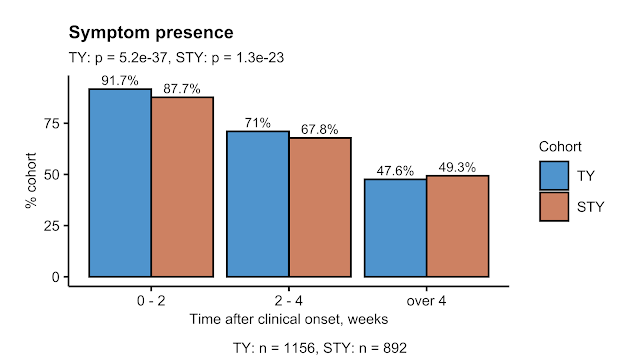On inflammation, machine learning and lung recovery after COVID-19

Having your work published is always a great honor and satisfaction, even though your results are not so optimistic. If, by accident, you follow my blog for a while, you may have noticed a post concerning the CovILD project - an observation cohort study, I've been curating as a data scientist. Quite recently, we've managed to publish the follow-up quite prominently in eLife ( Sonnweber et al. ) and develop a toolbox which may help us to assess the risk of complicated recovery from COVID-19, at least when it comes to lung injury and functional deficits. Lung injury following COVID-19 tends to be chronic and symptom-independent As a reminder, at the onset of the SARS-CoV-2 pandemic in Tyrol, a cohort of 145 patients was recruited, including those suffering from mild COVID-19 managed by home isolation and individuals requiring hospitalization, including mechanical oxygen supply and intensive care. The intention of the study was to establish a long-term observation collective to mo...



